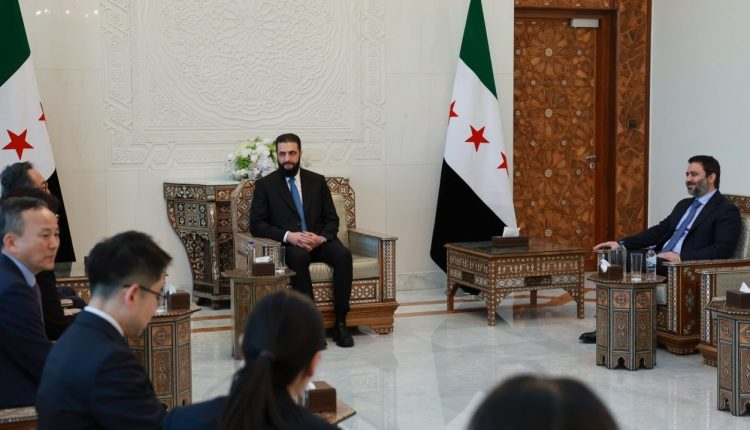Syria and South Korea Establish Formal Diplomatic Ties Amid Shifting International Landscape
By Kardo Roj
DAMASCUS, Syria (North Press) –
Syria and South Korea officially signed an agreement on Thursday to establish diplomatic relations, marking a significant development in Damascus’ efforts to expand its international engagements following years of isolation.
The agreement was signed in the Syrian capital by Foreign Minister As’ad al-Shibani and his South Korean counterpart, Cho Tae-yul, during a high-level official visit. The South Korean delegation was also received by Syria’s transitional president, Ahmad al-Shar’a, in a move described by both sides as “a turning point” in bilateral ties.
The signing ceremony follows a preliminary agreement reached last month, with Seoul expressing readiness to build a diplomatic bridge with Damascus in response to what it called “Syria’s clear interest in constructive bilateral cooperation.”
This step represents a notable shift in South Korea’s foreign policy. Since the outbreak of the Syrian conflict in 2011, Seoul had aligned with much of the international community in distancing itself from the Syrian government. However, with the formation of a transitional administration under President Shar’a, South Korea appears to be reassessing its stance.
In an official statement, the South Korean Foreign Ministry emphasized its commitment to “diplomatic openness and international cooperation,” adding that the re-establishment of formal relations with Syria aligns with broader global efforts to support stability and reconstruction in the region.
Syria’s Foreign Minister al-Shibani welcomed the move as “a reaffirmation of Syria’s re-entry into the international fold” and expressed confidence that the agreement would open the door to economic and developmental cooperation.
The reestablishment of diplomatic ties between Damascus and Seoul comes at a time of significant regional realignment. Syria’s transitional government, led by Shar’a, has sought to reposition the country on the international stage, promoting reconciliation and reengagement with both regional and global actors.
For South Korea, the decision may also reflect an interest in maintaining strategic engagement in the Middle East, particularly in light of growing competition from regional powers and shifting alliances. It is also seen as part of Seoul’s broader effort to diversify its diplomatic footprint beyond traditional partners.
While the agreement does not yet include immediate economic commitments, officials from both sides hinted at potential future cooperation in infrastructure development, energy, and education — areas where South Korea has historically invested in post-conflict recovery elsewhere.
The signing signals a growing international recognition of the transitional government led by President Shar’a, which emerged through a negotiated political process aimed at stabilizing the country after more than a decade of conflict.
In northeast Syria, governed by the Autonomous Administration of North and East Syria (AANES), officials have repeatedly emphasized the importance of international partnerships in supporting inclusive reconstruction and peacebuilding. The Kurdish-led Syrian Democratic Forces (SDF), which continue to play a crucial role in maintaining security in large parts of the country, have also underscored the value of diplomatic normalization in ensuring long-term stability.

